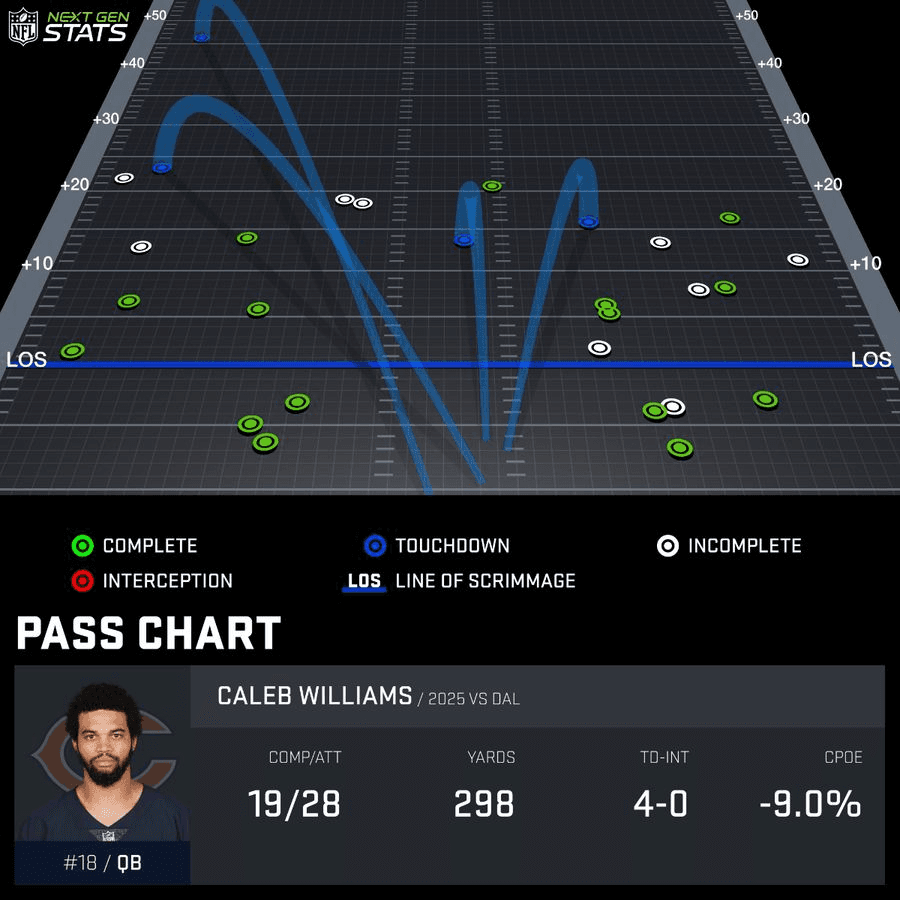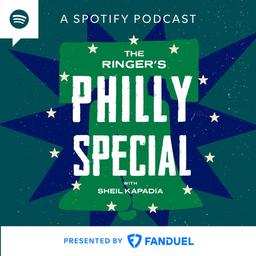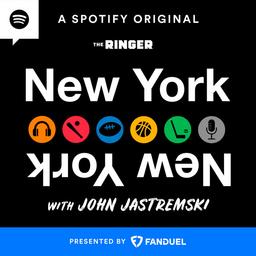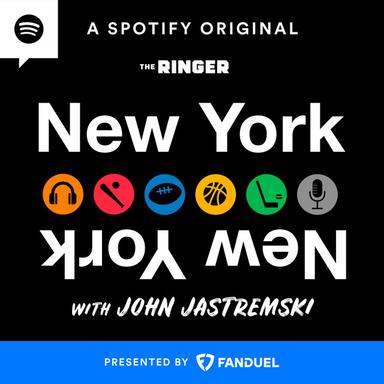Every week this NFL season, we will break down the highs and lows—and everything in between—from the most recent slate of pro football. This week, blocked field goals led to dramatic finishes to multiple games, the Eagles passing offense came back to life, the Bengals fell apart in their first contest without Joe Burrow, Russell Wilson got booed at home, and more. Welcome to Winners and Losers.
Winners: Jalen Hurts and A.J. Brown
A minute into the third quarter of Sunday’s game against the Rams, it seemed some of the main characters of the Eagles offense—quarterback Jalen Hurts, star receiver A.J. Brown, and first-year offensive coordinator Kevin Patullo—were destined for another week of hard questions regarding the state of the unit. Philadelphia trailed the Rams by 19 points after the visitors turned a Hurts sack-fumble into a touchdown at the beginning of the second half. At that point in the game, Patullo’s offense was averaging just 1.6 yards per play, Hurts was averaging negative-1.05 EPA per dropback, and Brown hadn’t registered a catch. Forget about winning the game; simply putting together a long scoring drive felt impossible.
But things change quickly in the NFL, and 29 minutes of football later, Philadelphia hadn’t just won the game: Its passing game was also back on track. Hurts threw three touchdowns to lead the comeback effort—and he got a major assist from the special teams unit. Perhaps I’m burying the lede by skipping over the blocked field goal attempt as time expired that clinched the game for Philadelphia, but the second-half resurgence of the passing game feels like the bigger story here for the team going forward.
At the very least, Brown should be in good spirits after catching six passes for 109 yards and a touchdown in the second half. His first catch of the game drew a sarcastic cheer from a restless crowd at Lincoln Financial Field, but he’d give them plenty more to cheer about over the course of the game. His 38-yard catch early in the comeback seemed to spark the offense and strike fear in the Rams secondary.
That explosive play was quickly followed by another strike from Hurts, who found Dallas Goedert up the seam for a 33-yard touchdown.
That made Los Angeles’s defense, which had been sitting on underneath routes throughout the first half, back off, which opened up the quick passing game for Hurts. Credit also goes to Patullo for adopting a no-huddle approach in the second half. Going up-tempo helped the offense turn things around, according to both DeVonta Smith and Nick Sirianni, and it seemed to encourage Hurts to speed up his decision-making after he struggled to diagnose L.A.’s coverages in the first half. Hurts was far from the problem plaguing the offense early, but his indecision wasn’t helping. He missed a few opportunities to hit open receivers by holding on to the ball too long and sailing several throws. After the sack-fumble, though, Hurts turned it on, hitting the two deep passes to kick off the rally. From there, he essentially played a point guard role to help finish it off.
It didn’t appear that there was much of a difference between the plays Patullo called in the first half and the calls we saw him make in the final two quarters. The Eagles—from the quarterback to the offensive line, which was playing without Lane Johnson for much of the game—just operated with greater efficiency. The key difference was where Hurts’s passes were going: mostly in the direction of Brown, who hauled in six of the nine passes thrown his way in the second half. He had just one target before halftime.
It’s hard to say whether this new approach of playing fast and actually targeting the team’s All-Pro receiver is sustainable. There are still significant questions about the overall design of Patullo’s offense and how Hurts fits into it, but this game did provide proof that when things are going right, the Eagles offense can still raise its game to a championship level—something we hadn’t seen yet this season.
Winner: Blocking Field Goals
OK, now we can get to that bonkers ending in Philadelphia, which included TWO blocked field goals in the final frame. Typically, we’d consider a team that wins on a blocked game-winning kick a bit lucky, but there was no luck involved here. The Eagles caved in the Rams’ line, and it appeared that multiple Philadelphia players could have blocked Joshua Karty’s 44-yard kick.
The glory ended up going to defensive tackle Jordan Davis, who blocked the kick, scooped it up, and ran it in for the first touchdown of his career, hitting over 18 mph on his way to the end zone. It’s not an exaggeration to say that we may have never seen a man that big run that fast.
Fans of blocked field goals had plenty more to celebrate on Sunday. Just moments earlier in Cleveland, the Browns blocked an attempt at a go-ahead kick by the Packers. The block gave Cleveland just enough time to launch its own game-winning drive.
The Browns needed only a few plays to get into range for Andre Szmyt to seal the biggest upset of the NFL season to date with a 55-yard field goal as time expired. It was an inexplicable loss by a Packers team that looked like one of the league’s best through two weeks. But issues in pass protection and a worthless run game led Green Bay to waste another impressive outing from its defense. And then there was Jordan Love, rediscovering his inner bozo and tossing the worst interception of the day.
But before any of us could process what we had just seen in Philadelphia and Cleveland, the special teams gods blessed us with another doozy. This one came from the Buccaneers-Jets game that seemed to be over after the third quarter. With about a minute to go, Tampa Bay lined up for a field goal that would have put the game away. Instead, this happened:
The Jets blocked Chase McLaughlin’s 43-yard attempt, scooped up the ball, and returned it for a go-ahead touchdown with just over a minute remaining in the game, completing a 17-point comeback. Unfortunately for New York, that left too much time for Baker Mayfield and a seriously banged-up Bucs offense, which lost Mike Evans to a minor hamstring injury, to launch a comeback of their own. Mayfield, with the help of rookie receiver Emeka Egbuka, got back into McLaughlin’s range, and the kicker calmly split the uprights as time expired.
Those three blocked kicks in Cleveland, Philadelphia, and Tampa all took place within a stretch of five minutes in real time. (The Rams had another kick blocked earlier in the game, as did Tennessee’s kicker, Joey Slye.) What had started out as a rather forgettable early slate quickly evolved into a breathtaking reminder of why this sport captures our attention for hours on end every Sunday. Football rocks.
Loser: Cincinnati’s Backup Plan
Think about all of the bad offense we’ve seen over the first three weeks of the season. There are plenty of unwatchable performances to choose from: Minnesota’s poor Week 2 showing against the Falcons, Atlanta’s pitiful effort against Carolina this week, whatever it is the Browns have been trying to accomplish these past two games, etc. There have been some real stinkers! But none of them compares to what we saw out of the Bengals in a 48-10 loss to the Vikings on Sunday. By EPA, it was the worst offensive performance of the season by a healthy margin. In Cincinnati’s first game without Joe Burrow, who will miss at least three months with a toe injury, the offense generated negative-33.3 EPA. Per TruMedia, that’s nearly 8 EPA clear of the second-worst offensive output of the season, which came from Tennessee in its Week 1 loss to the Broncos.
In last week’s Winner and Losers column, I tried to put a positive spin on the Burrow injury news by pointing out the success of the Bengals offense the last time Jake Browning had to start for an extended stretch, in 2023. But I failed to account for the fact that NFL defensive coordinators now have tape on the Browning-led offense, and it would be up to Zac Taylor to remain a step ahead. That did not happen. And after one week, albeit against a fierce Brian Flores–led defense, I’m ready to abandon all hope for Cincinnati’s season.
Browning has attempted just 59 passes in relief of Burrow and already leads the league in interceptions after tossing a pair against Minnesota. He’s dead last in EPA average, with a sizable gap between him and the second-worst quarterback in the metric, rookie Cam Ward, and he’s sporting the fifth-worst success rate.
To be fair to Browning, he didn’t get much support from his teammates. The pass protection was just as leaky as it was for Burrow, and Taylor is still searching for the Bengals’ first productive run game since he was hired five years ago. Browning was not one of the five Bengals players who fumbled on Sunday—and Cincinnati lost three fumbles in the final two minutes of the first half. The shit show Cincinnati put on this week was a total team effort.
Fortunately for Browning and the Bengals, they won’t see Flores’s defense again. They should also consider themselves lucky that they won’t play against Minnesota’s Isaiah Rodgers again in 2025 after the Vikings cornerback put on a legendary performance—one that may have vaulted him into the early lead in the Defensive Player of the Year race. His early pick-six was one of the most impressive plays you will ever see from an NFL player. Later in the first half, Rodgers punched the ball out of Noah Fant’s hands, recovered the fumble, and then returned it for a touchdown to blow the game open.
Rodgers added another forced fumble for good measure, capping off one of the best individual performances in modern history. He earned a perfect 99.9 grade from PFF, the highest mark the company has ever given out.
Loser: The Chargers Curse
If you want proof that Jim Harbaugh has exorcised the demons that have been holding the Chargers back for the past two decades, look no further than their 23-20 win over the Broncos on Sunday. This game had all the makings of a typical loss for this historically cursed franchise. There were hilariously unlucky bounces, inexplicable breakdowns in protection, an injury to an offensive starter, and a few questionable play calls from the offensive coordinator. Under a different head coach, the Chargers would have melted in crunch time and the Broncos would have escaped Los Angeles with a dramatic divisional win. Instead, it was the Chargers who pulled it out and pushed their record to 3-0, with all three wins coming against AFC West opponents.
I’m giving Harbaugh credit for leading Los Angeles to Sunday’s dramatic win, which Cameron Dicker sealed with a 43-yard field goal as time expired, but it should probably go to Justin Herbert, who turned in this Play of the Year candidate on the game-tying touchdown.
I’m not sure which aspect of the play was more impressive: the escape from pressure, or the cross-body throw under pressure and into a nonexistent window. According to Next Gen Stats, the completion probability was 16.7 percent, making it his most improbable throw and catch since Week 8 of last season. Even that number seems a little high. I can count the number of quarterbacks capable of making that play on one hand, and I’d still have a finger to spare.
Herbert struggled under Denver’s intense pass rush throughout the day, but he saved his best for the fourth quarter. He completed 12 of his 15 fourth-quarter pass attempts for 123 yards and that incredible touchdown while facing pressure on nearly a third of his dropbacks. He generated 7.8 EPA in the last quarter alone, which ranks as the 10th-best fourth quarter of the season so far, per TruMedia. His fourth quarter in the opening-week win over the Chiefs ranks ninth, making Herbert the only quarterback with two performances in the top 10 this season. Not bad for someone whose clutch gene has been repeatedly questioned throughout the first few seasons of his career.
Loser: Michael Penix Jr.
While Falcons coach Raheem Morris tried to shut down talk of a quarterback controversy after he benched Penix for the fourth quarter of Atlanta’s 30-0 loss on Sunday, saying he put Kirk Cousins in the game because it was “out of reach,” those questions won’t stop if the young quarterback doesn’t improve in a hurry. Penix finished with an unimpressive stat line—he completed just 18 of 36 passes for 172 yards with two interceptions—but I don’t know if the box score accurately captures just how poorly Penix played in Week 3. It was a concerning game for the second-year pro, both from a mental and physical standpoint. He was inaccurate, which has been a recurring problem, and he made several mental mistakes that cost the Falcons any chance of keeping the game competitive, including this third-quarter pick-six:
That’s a brutal interception based on the TV angle, but it looks even worse when you zoom out to get a look at the entire field, which shows that Penix had Ray-Ray McCloud wide open downfield and turned down that opportunity to throw a covered checkdown.
Woof. That’s as bad an interception as you’ll see, and it wasn’t Penix’s only mistake. Early in the first half, he missed his hot receiver (who was open) against a third-down blitz and forced a more difficult throw that fell incomplete, ending the drive.
In the second half, he panicked in a clean pocket on fourth down and threw the ball at an open receiver’s feet.
Penix looked solid in a close Week 1 loss to Tampa Bay but has been nothing short of a disaster these last two weeks. Since Week 2, he’s completed just 54.4 percent of his passes with an off-target throw rate of 21.1 percent, per TruMedia. He’s averaged negative-0.53 EPA per dropback, which ranks dead last over that span. His 32.3 percent success rate ranks 29th. A stinker against a Brian Flores–coached defense last week was understandable, but shitting the bed against the Panthers? That one’s a little more challenging to explain.
And now Morris has an awkward situation on his hands. The Falcons have plenty of talent on offense and are off to an encouraging start on defense. They could make a playoff push with just competent quarterback play—and they have a $27.5 million veteran backup who, when healthy, has proved he can clear that bar. Penix has yet to do so. Morris can say all he wants that there’s no controversy in Atlanta, but the 25-year-old quarterback is really the only person who can quiet that talk.
Loser: The Russell Wilson Redemption Tour
It’s been canceled after just one week—or at least until Russell Wilson’s next game against the Cowboys. But given how the Giants’ passing game has fared against their two non-Dallas opponents this season, including Sunday night’s 22-9 loss to a reeling Chiefs team, the idea of Wilson holding onto the starting job until the Week 18 rematch against Dak Prescott looks far-fetched. On Sunday, the MetLife Stadium crowd repeatedly booed their starting quarterback whenever he trotted on the field instead of Jaxson Dart, who continues to take intermittent snaps. It’s just a matter of time before head coach Brian Daboll gives in to the pressure to play the rookie full-time. That Daboll is already subbing in Dart whenever the Giants want to call a run-pass option shows he’s already itching to make the move.
The decision might not even be that difficult if Wilson continues turning in performances like the one we saw against the Chiefs. Ordinarily, I’d give a quarterback a pass for getting their wires crossed when facing a Steve Spagnuolo–coached defense, but the 2025 Chiefs don’t feature a typical Spags defense, and Wilson put on a historically bad performance in prime time. He finished the game with a QBR of just 6.5, according to ESPN. (Penix nearly doubled him up with a QBR of 12.4. Browning’s QBR was nearly four times higher.)
It’s getting harder to watch Wilson, who can still connect on the odd moonball but seems to be regressing as a pocket passer later in his career. He’s spooked by even the slightest hint of pressure, and he’s still reluctant to attack the middle of the field. Simple coverage rotations disrupt his process; he routinely misses telegraphed blitzes before the snap, and he struggles to read out passing concepts that are typically installed on the first day of the offseason.
This series of plays in the red zone late in Sunday’s game was particularly atrocious.
With a popular first-round rookie (mostly) sitting on the bench, it’s getting harder to justify Wilson’s spot atop the depth chart. If a game against the leaky Chiefs defense didn’t make that clear, then next week’s game against a dominant Chargers defense should do the trick. Wilson’s redemption tour may be off, but Dart Watch is officially underway.
Winners: Caleb Williams and Ben Johnson
There are numerous ways to set a quarterback up for success: Hire a brilliant offensive coordinator. Build a formidable offensive line. Surround them with talented skill players. Or, when all else fails, just play against the Cowboys defense, and everything will seem to fix itself. That did the trick for Chicago’s Caleb Williams, who threw four touchdowns against the hapless Dallas defense, which has shockingly taken a step back after trading away its superstar pass rusher for pennies on the dollar. So, thank you, Jerry Jones, for helping us avoid another week of discourse about Williams’s fit in Johnson’s offense by creating this impossibly bad defense.
Calling this a breakout performance for Williams would be a little off base. Despite what the numbers say, the second-year pro was just as impressive—if not more so—in the Bears’ Week 2 loss in Detroit. If anything, this was a breakout for Johnson, whose offense was finally able to generate the big plays it routinely did with Jared Goff in Detroit. The fact that the Bears were going up against Dallas cornerbacks who just fall over certainly made Johnson’s job easier.
But Johnson’s game plan was impressive, even when accounting for the quality of the opponent. He seemed to abandon the idea that he could replicate the finely tuned passing game he ran with Goff. Instead, the rookie head coach tapped into his new quarterback’s talented arm with an array of play calls that attacked the deep parts of the field. Williams was already throwing downfield more often than Goff did under Johnson, but he pushed the envelope in Week 3 with 13 pass attempts that traveled more than 10 yards downfield, per Next Gen Stats.

But this was far from a perfect day for Williams. The quarterback completed over 67 percent of his passes against Dallas, but that was almost 9 percentage points lower than his expected completion percentage, according to Next Gen Stats. His lack of precision was glaring when targeting the intermediate areas of the field. He completed just five of 10 passes in that range and finished with a CPOE of negative-17.9 percent. Funny enough, Williams had a lower rate of off-target throws in the team’s embarrassing loss in Detroit a week ago. I’d argue his process in the pocket against the Lions was more efficient as well.
Still, this was an encouraging outing for Williams, all things considered. It was proof that he’s capable of torching a bad defense—even when he’s not particularly accurate. It also served as a showcase of his immensely talented arm, which Johnson took full advantage of while dialing up a flea flicker that went for a 65-yard score to rookie Luther Burden III despite a terrible pitch from D’Andre Swift to set it up. Look at how Williams hit Burden in stride while throwing flat-footed and bracing for a big hit in the pocket.
By the end of Chicago’s 31-14 win over the Cowboys, Williams was tied with Aaron Rodgers for the most passing touchdowns in the NFL this season. He ranks in the top 10 in both yards and EPA per dropback. He leads all second-year quarterbacks in PFF’s passing grade and ranks ninth overall. There are still plenty of concerns about the Bears offense—with the ground game at the top of the list after Chicago’s running backs mustered just 49 yards in Sunday’s win—but, for the first time in a long time, the play of the quarterback isn’t chief among them.
Winner: Bobby Slowik
Sure, former Texans offensive coordinator Bobby Slowik isn’t off to the best start in his new role as Dolphins pass game coordinator, but he has to feel some measure of vindication after watching Houston’s offense implode this season after he was made the scapegoat for all of the unit’s issues in 2024. After an unsightly performance for C.J. Stroud and Co. in a 17-10 loss in Jacksonville on Sunday, the Texans now sit three games behind the red-hot Colts and also made a little history—but not the good kind.
Houston’s defense, led by head coach DeMeco Ryans, has picked up where it left off last season, when it dragged Slowik’s dreadful offense to the second round of the AFC playoffs. The offense, though, is still dreadful, even after Ryans replaced Slowik with former Rams and Patriots assistant Nick Caley. The problems that sabotaged the unit a season ago—an inefficient run game, poorly timed penalties, and inconsistent play from Stroud—haven’t been solved. If anything, they’re even bigger issues in Caley’s first season on the job than they were under Slowik.
Stroud’s continued regression in year three is the most concerning issue, after he seemed to take a step back in his second season following a brilliant rookie campaign. Ryans and Caley gave the young quarterback more control of the offense in hopes that he’d be able to clean up any issues with protection or with the play call before the snap. But Stroud’s inconsistency has contributed to the mess, not made it better. He’s looked overwhelmed when trying to sort things out at the line of scrimmage, and that’s starting to bleed over into his post-snap performance. He threw two interceptions on Sunday, and while one of those picks was a bit unlucky, the other was thrown directly into coverage.
While Stroud’s decision-making has been disappointing, his accuracy has been a far bigger problem. Only two quarterbacks have a higher off-target throw rate, and only five have a lower success rate, per TruMedia.
So, to recap: The Texans have no run game (ranking dead last in run success rate), they can’t protect the pocket (ranking 22nd in PFF’s pass block grade), their quarterback seems to be broken (he ranks 27th in QBR), and they’re the only team that has yet to score 20 points in a game this season. I’d say it can’t get worse for a team that’s 0-3, but a loss to the Titans next week could be the low point for a franchise that’s had plenty of them in its 23-year history.
Winner: The NFC West
The NFC West is the best division in football through three weeks. It has the best cumulative record of any division, and all four of its teams have a positive point differential heading into the last week of September. Right now, San Francisco finds itself at the top of the division after outlasting the Cardinals at home. Eddy Piniero’s game-winning kick as the clock hit zeroes made the difference, but the 49ers weren’t able to escape without another major injury. Nick Bosa left the game in the first quarter with a knee injury. After the game, Kyle Shanahan said the medical staff was unable to rule out a possible ACL injury, which could end Bosa’s season before it really got started. The Niners have already placed tight end George Kittle on short-term injured reserve this season, are still waiting for receiver Brandon Aiyuk to return from an ACL injury he suffered last season, and have played their last two games without starting quarterback Brock Purdy, who could return from a turf toe injury as soon as next week.
The Rams failed to keep pace with the undefeated 49ers after their come-from-ahead loss in Philadelphia. The Seahawks pulled into a three-way tie for second place—or last, depending on how you look at it—with a dominant 44-13 home win over the winless Saints. Seattle may have won by even more if Mike Macdonald hadn’t pulled his starters after the third quarter. Sam Darnold is PFF’s highest graded quarterback of the week after a thoroughly impressive performance against a thoroughly unimpressive New Orleans defense.
With Macdonald coaching a talented defense, there’s an argument to be made that the division’s most complete team resides in Seattle, but the Rams would be my favorite to take the NFC West this season. The Seahawks offense still has plenty to prove with first-year offensive coordinator Klint Kubiak, who got off to a hot start last season in New Orleans before his offense imploded. The 49ers are once again banged up. And the Cardinals still can’t close out winnable games —they were this close to blowing a big lead against a bad Carolina team last week. Los Angeles has the division’s best coach, its best quarterback (when he’s healthy), and its best pass rush. With a better blocking unit on special teams, the Rams would be tied for the division’s best record, but there’s still plenty of time to make up the ground they lost on Sunday in Philadelphia.
Week 4 will provide the NFC West a platform to show off its strength, with the Cardinals and Seahawks squaring off on Thursday Night Football, the 49ers taking on the 2-1 Jaguars, and the Rams facing the undefeated Colts.








